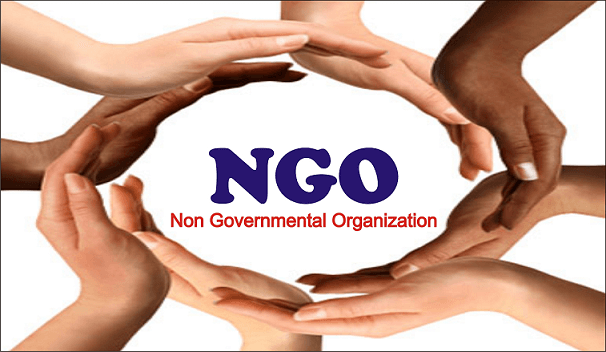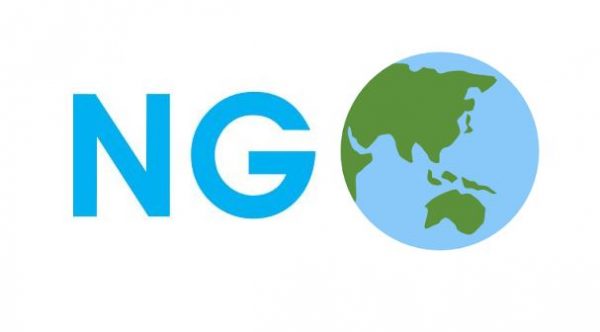Non-Governmental Organizations (NGOs) as the name implies are organizations whose membership and activities operate independently of the government and are not subjected to paying taxes. This post is a simplified guide on how to register an NGO in Nigeria, how much to register and the requirements involved for NGO registration.
A Non-governmental Organization (NGO) is a voluntary group that is not under the control of the government and is not in business to make a profit but rather to meet some specific needs in society.
NGOs are mostly funded by the government of a country while in some cases, they could be funded by private individuals or groups, as well as founders.
In Nigeria, we have different types of Non-Governmental Organisations (NGOs) that are licensed to operate. Below are these NGOs
- Trade unions
- Community-based organizations
- Social clubs
- Religious organizations
- Cultural associations
- women’s groups
- Youth clubs,
- Professional associations
- Political parties
- Cooperative societies
- specialized professionally run NGOs and friendly societies
How Much Does it Cost To Register An NGO in Nigeria?
There is no fixed amount for registering an NGO in Nigeria. This is because different accredited agents will charge you differently, but it is believed registering an NGO in Nigeria should cost around ₦120,00 to ₦160,000
- Read Also: Cost of Vehicle Registration in Lagos
How To Register An NGO in Nigeria
You must have heard or read about the massive benefits that come with having an NGO registered with CAC and probably be looking forward to registering your NGO/non-profit organization.
Going by the instructions of the Companies and Allied Matters Act 1990 (CAMA), an NGO or Charitable foundation may be registered as a Company Limited by Guarantee or as an Incorporated Trustee.
However, due to uneasy requirements of registering a company limited by guarantee in Nigeria, it is always preferable for any NGO or foundation to be registered as an Incorporated Trustee under Part C of the CAMA
NGO (Foundation) Registration Requirements
Registering a Non-profit (NGO) organization in Nigeria involves a 3 stage process.
1. Plot out a plan
To start an NGO, you need to have a plan and write about your organization’s beliefs, mission, and purpose.
As you define your mission and draft your purpose statement, you should describe the overall purpose of the NGO; the activities your NGO will engage in or undertake; its core beliefs and other vital information
2. Get a proposed name for your Foundation
the name of any foundation depends on the nature of activities, objectives, and goals of the foundation, the following are examples of names you may choose:
“Youths for Democratic Governance”, “Brilliant Minds Educational Foundation”, “Trinity Organization Club”, “Starpeak Champions Football Club”,
“Jesus Christ Outreach Ministries”, “Graceland Trust Foundation”, “Amalgamated Union of Market Traders”, “The CEOs Roundtable”, “All United Sports Club”,
“Foundation for Human Rights”, “Roundtable for Environment Conservation”, “Legacy Football Academy”, “The Mental Health Foundation”, Good Governance Advocacy Foundation”,
“Emerging Tigers Union”, “Love and Care Foundation”, “Association of Artisans and Miners”, “Climate-Change Foundation”
and so on…
3. Appoint the Trustee(s).
Having a trustee is very important for NGO registration, you should have it in mind that a person qualified to be appointed a Trustee must not be less than 18 years of age and must have not been involved in any case of fraud or criminal situations
4. Consult an Accredited Agent.
To start an NGO, you need to consult an agent otherwise known as a CAC Expert who has been duly accredited by the Corporate Affairs Commission (CAC) to conduct pre and post-incorporation matters with the Commission to help you execute the following:
Services of an Accredited Agent
An accredited agent could either be a lawyer, barrister or chartered accountant with vast expertise with CAC who could assist you in registering your NGO
1. Name Availability Search and Reservation
Your agent will search for the Corporate Affairs Commission (CAC) registry to check if the NGO name you have chosen is available for reservation. Only a name that is not identical to an existing registered organization in Nigeria can be reserved for you. Where your name is available, the same will be approved for registration.
2. Publication of Notices
Your Agent, in compliance with the law, will publish in three (3) national dailies, one being a local newspaper widely circulated in the area where your NGO is based on a notification of intention to register the NGO, setting out the name of the NGO; the names of trustees, aims and objectives; and a call for objections within 28 days to the registration of the NGO (if any)
3. Drafting of the NGO Constitution
The NGO’s constitution drafted by the agent will set out rules that would govern the internal affairs of the NGO, the aims, and objectives of the NGO, the governance structure, names of members of the Board of Trustees, the statement of purpose, etc.
4. Drafting of the Minutes of the Meeting
The Agent will draft the minutes of the meeting that will provide details on whereat members of the Board of Trustees were appointed list of members present and absent, the voting pattern, and the authorization to apply for registration, signed by the Chairman and Secretary of the Board.
5. Documentation of all incorporation documents
Your Agent will put together all incorporation documents including the duly completed application form in triplicate, the letter of application, the original newspaper publications, copies of the NGO constitution so drafted, the above minutes of the meetings, passport-sized photographs of the Trustees, the impression of the common seal of the NGO, etc.
6. Submission and Filing
Your Agent will file all the relevant documents with the Corporate Affairs Commission for the incorporation of the NGO.
7. Collection of the NGO Certificate of Incorporation
The Certificate of Incorporation of the NGO will be issued by the Corporate Affairs Commission to you through your CAC Accredited Solicitor after due documentation and filings.
8. Open a Corporate Bank Account with the NGO Name
This is very important because opening a bank account in the NGO’s name shows the NGO is official and you are ready to receive financial support and donations from the public.
To open a corporate bank account, you will need the Certificate of Incorporation of the NGO issued by the Corporate Affairs Commission.
Important Documents for NGO Registration
- A formal letter of application
- Two copies of the Applicant’s constitution
- 2 Passport photographs of the Trustees
- 2 copies of the application form signed by the Chairman and Secretary of the body or association
- Extract the Minutes of the general meeting appointing the trustees, listing all members present and the voting pattern.
- Residential Addresses and Signatures of the Trustees on the Application form.
- Trust declaration form duly deposed to by each trustee in the High Court of Nigeria
- Evidence of property acquisition for the organization or undertaking instead of the property acquisition.
- The impression of the common seal of the association on the Application form.
- Extract of the Minutes of the meeting where the special clause rule was adopted into the constitution of the organization; signed by the Secretary and Chairman.
- Original Newspaper publication
- Bank draft for the prescribed fee.
Benefits of Registering an NGO in Nigeria
Having understood how to register an NGO in Nigeria, the following are the benefits and incidences of registering a Foundation/NGO.
1. Right to Acquire Assets
When your organization is officially registered with the Corporate Affairs Commission as incorporation, you will automatically have access to acquire land, own fixed assets and/or incur liabilities under its common seal. It is illegal for an unregistered organization to buy, hold or sell land anywhere in Nigeria.
2. Protection from Personal Liability
Once your NGO Foundation is duly registered with CAC it makes you eligible to you buy, acquire and register stakes and assets in the name of your NGO.
This is a wise way of protecting yourself from unlimited liability for untoward happening such as bankruptcy, foreclosure, judgment debt, divorce etc.
All Assets and properties incorporated in the name of your NGO can never be targeted or attached for the satisfaction of any unsettled debts, nor can they be used for court settlement in a divorce proceeding. You are better off outsmarting an ugly situation in future than being sorry!
3. Corporate Entity
As a corporate body, your organization’s dealings and engagements with the public will improve. The NGO can sue to enforce its legal rights or be sued through its registered trustees.
4. Structured Financial Plan
Having an NGO can afford a tax-free mechanism for activities you are carrying on under the NGO. NGOs are deemed not-for-profit and tax-free.
You can develop a structured financial plan that allows the organization to do business devoid of tax liabilities. This is called “tax avoidance”.
Tax avoidance is a legitimate way of reducing or eliminating your tax obligation. Tax avoidance is not “tax evasion” which is illegal!
5. Stability
The enrollment of your foundation can recommend that there is a compelling and capable authority set up. The public will see equivalent to being more steady than an unregistered foundation.
Ideological groups, government, contributor offices, monetary establishments, good cause associations and different NGOs will need to join forces with an enlisted body to additional regular destinations.
6. Perpetual Succession
This means an NGO has an unlimited lifespan and will continue to exist even if the founder or trustees die or leave the NGO. The organization’s existence will only cease if it is formally wound up by the Order of the Court. Amongst other benefits, this may allow perpetual succession.
7. Access to Credit
Registering an NGO can afford access to credit from lenders and financial institutions. You can use a loan facility to promote the organization’s activities, finance a mortgage, or acquire land or fixed assets. Banks will want to see proof of registration with the CAC as a condition precedent to giving a loan.
8. Name Preservation
Once your organization is registered, no one can use the same name or name similar to it throughout Nigeria. This has the benefit of protecting your corporate image and name from unauthorized use.
9. Banking
Opening a corporate account with a bank for an NGO may signal the fact that you are transparent. Some private persons, government, donor agencies and other NGOs will not be comfortable writing you a cheque for your organization in your name.
A bank account for the NGO would signal its corporate existence and its readiness to receive donations. You need to provide proof that your organization is registered with the Corporate Affairs Commission to be able to open an account with a bank.
List of Registered NGOs in Lagos, Nigeria
Looking for some registered NGO in Lagos, Nigeria?, here is a list of some registered Foundations covering both Lagos and Nigeria
- Old Peoples Support International
- Total Care Unit
- Ven Dr. Josiah Alozie Foundation
- Action Aid for the Unemployed
- Global Peace Development
- Society for Telemedicine and E-Health in Nigeria
- Lygel Youths & Leadership Initiatives
- Rural-Urban Development
- Community Health Enlightenment & Development
- Royal Integrity & Accountability Organization
- Kano Development Projects
- Theresa Karis Foundation
- African Business Round Table
- Excellence Foundation International Inc
- Youth Mentoring and Orientation Initiative
- Society for Employment and Self-Reliance
- Centre for Transformation of the Under-Privileged
- Society for African Safety & Development
- Joint National Association of Persons with Disabilities
- We Care Welfare Organization Nigeria
- Foundation for Rural-Urban Integration
- African Liberty and Hope Initiative (ALHI)
- African Citizens Development Foundation
- Fair Trade Handicraft Foundation (FHF)
- Support Health and Education for Development (SHED)
- Majesty Literacy Foundation
- Bioresources Development & Conservation Programme
- Guidance & Counseling Dev. Association (GCDA)
- Society for African Safety & Development
- Women Aid Collective (WACOL)
- Network of Caring Women
- Coalition of Human Rights Org.
- Oha-na-Eze Women Empowerment Association
- Rural Widows and Orphans Foundation Inc.
- Foundation for Leadership & Education Development
- Apiworld International
- Gateway to Health and Life
- Center for National Unity and Representative Democracy
- Gantys Aid for Widows, Orphans & Needy
- African Women Initiative Against Violence & Poverty
- Restore
- Center for Responsive Leadership and Transparency
- Poverty Alleviation for the Poor Initiative
- Women & Development Movement
- Society for Rural Women & Youth Development
- Demonstration School for Deaf Children
- Youth Enhancement Organisation
- Youth Empowerment Foundation
- Hope for the Village Child Foundation
- Albert Caayo Foundation
- Dev. Empowerment Society International
- Relief Peace and Development Initiatives
- Global Network Against Trafficking in Women and Children
- People Against HIV/AIDs in Barack
- Teenage Girls Empowerment Centre
- Association of Professional Women Accountants of Nig.
- African Youths International Dev. Foundation
- Halt Aids
- Youth Initiative for Advo. Growth & Advancement
- IMPROVED Action for Community Transformation
- Action Family Foundation
- Child Labour & Human Trafficking Relief Initiative
- International Forum for Peace in the Niger Delta
- Peace and Conflict Resolution Organisation
- Community Development Foundation
- Safinatu Buhari Foundation
- Benedict Ekanem Foundation
- Nature Work International Research Institute
- Community Life Project
- Global Youths Awareness and Development Initiative
- Centre for Peace & Conflict Studies
- Remar Nigeria
- Partnership Initiatives in the Niger Delta (PIND)
- CSO Consultation
- Youth for Peace and Development in Niger Delta
- Civil Society for HIV/AIDS in Nigeria
- African Business Round Table
- Civic Duties Awareness Initiatives
- Poverty Alleviation Network and Self Dependence Initiative
- Coalition for Change in the FPRT in Nigeria
- Fantsuam Foundation
- Mass Medical Mission
- Reuben A. Okoro Foundation
- Sir Emeka Offor Foundation
- Excellent World Foundation
- Communication Development Initiative (CDI)
- Dave Nnabuife Inyere Foundation
- John Hopkins Public Health in Nigeria Initiative
- La-Shah Foundation
- Senior Citizens & Elders Forum Nigeria
- Association of NGOs and CSOS of Nigeria
- African Development Initiative for Poverty Alleviation
- Liftup Care for the Needy Foundation
- Support Physically Challenged
- New Hope Agency
- Integrated Dev. Services
- Center for Economic Viability in Africa
- Center for Economic Viability in Africa
- Centre for Leadership Support and Social Progress (CLSSP)
- 202 NPC/NGO-IC/S.202/1 Integrated Development Services (IDS)
- Amack Children Development Organisation
- Sev-an Foundation
- Earth Push – Ltd/GTE
- Women and Children Economy Development
- Global Women and Youth’S
- Right to Education for Development
- Mantel Hope Foundation
- Federation of Nigeria Youth Cooperative
- Christ Cares International Mission
- Sheikh Ahmad Al-Hamaweey Islamic Foundation
- Ummah Support Initiative (USI)
- Women of Substance International Organization
- Joint National Association of Persons with Disabilities
- Women, Youth and Children Upliftment Foundation
- Youth Empowerment and Community aids free Initiative
- Committee For The Support Of The Dignity Of Women
- Girls Power Initiative
- Great Women Multipurpose Co-Operative Society
- Lift Above Poverty Organization
- Young Girls Foundation
- Gender Care Initiative (GCI)
- Emmanuel Children Foundation
- IDIA RENAISSANCE
- Women’s Consortium of Nigeria (WOCON)
- The Real Woman Foundation
- Women Trafficking and Child Labour Eradication
- Save the Child Initiative
- Women’s Consortium of Nigeria
- Ebunoluwa Foundation
- Project Alert
- International Reproduction Rights Research Action Group
- Women of Light Foundation (WOLF)
- Child Rights Brigade International
- Society for the Empowerment of Young Persons
- Life Helpers Initiative
- Network for Justice and Democracy (NGO)
- Rehoboth Homes and Skills Acquisition Centre
- Patriotic Citizen Initiatives
Qualifications to work for an NGO
Once you have decided to work for an NGO it is important to analyze yourself to ensure you have passed the following skills to make you work perfectly
- Read Also; Cost to Register a Trademark
1. Ability for teamwork
Working in an NGO requires a lot of teamwork and relating with people on a steady basis. It is important for you who have an interest in not-for-profit organizations to properly develop your teamwork and people skills.
2. Mult-lingual
This is another vital skill that could come in handy in working in an NGO depending on your role and choice of organization. The ability to speak more than one language is usually valued and sometimes even demanded in some organizations, especially in a foreign country.
3. Business Awareness
Charities require a lot of funding. Business awareness will be an advantage because NGOs will be interested in employing people who can handle functions like planning, marketing, negotiation, record keeping, accounting, budgeting and finance generally for the organization.
Read Also:
Advantages of Company Certificate over Business Name
How To Register and Get Startup Label in Nigeria
Conclusion: How To Register An NGO in Nigeria (Requirements)
Conclusively, registering an NGO in Nigeria is the first step to catapulting the NGO foundation for growth and success, I hope this article has explained the process of registering an NGO as well as the list of registered NGOs in Nigeria.
If you have any questions, or suggestions regarding how to register an NGO in Nigeria, kindly comment below

Legacy Benjamin is a serial SEO content writer with a half-decade of experience in the field of blogging. He is also a skilled business consultant, providing valuable insights to companies and individuals seeking growth and success. His expertise lies in crafting compelling and engaging content that captivates audiences and drives business results. For business deals, contact him



Awesome this is a really good. Nice work.
Welcome bro
I love this content. You really did well. I’m one of your top fans.